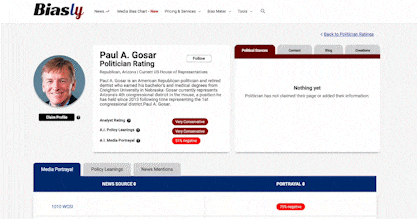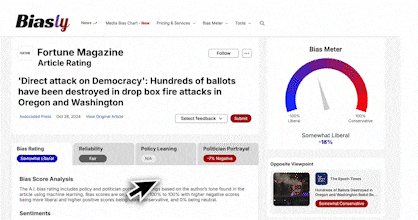
IndyWeek, a prominent news source in the North Carolina Triangle region, has been providing news, politics, arts, and culture coverage since its establishment in 1983. While it has garnered a loyal readership that appreciates its investigative journalism and in-depth reporting, questions about IndyWeek’s reliability as a news source has arisen in the past years. In this article, we will delve into the aspects of IndyWeek’s accuracy and reliability to help readers assess the trustworthiness of this publication.
The Importance of Reliability
Reliability, in general, refers to how trustworthy or accurate information, or in this case, a news source is. If we consider this definition, it quickly becomes clear why reliability is important in media sources. If we can’t trust the things we read then there isn’t much of a point in continuing to consume content from that source, after all. So how exactly can we gauge the reliability of a news source anyways?
There are several potential measures of reliability to look out for when trying to determine whether a media source is reliable or not. Red flags for an unreliable article can include the presence of wild unsubstantiated claims, facts dependent on other unreliable sources, heavy use of opinionated language, and more. Some indicators of a reliable news source, on the other hand, include things like:
- Absence of subjective/opinionated language in articles
- Credible sources cited (e.g., neutral sources, .gov, .edu websites)
- Facts and statistics backed by multiple relevant outside sources
- Use of primary sources when possible (e.g., interviews, quotes)
- Information that remains consistent across news sources
So How Does IndyWeek Fair?
The political reliability index developed by Biasly objectively assesses news organizations’ accuracy and trustworthiness. IndyWeek’s overall Reliability Score has been rated as ‘Good’ by Biasly. This rating is a weighted average of two distinct scores: the Fact Analysis Score and the Source Analysis Score, each evaluating separate components of IndyWeek’s Reliability. When computing the Average Reliability of the article the Fact Analysis score is more heavily weighted. These ratings are as follows in the next two paragraphs:
IndyWeek’s Fact Analysis Score is ‘Good,’ which suggests readers can trust most of IndyWeek’s content online. The Fact Analysis score focuses more on the accuracy of claims, facts, and sources presented in the article and any hints of selection and omission bias, which we will discuss further in the article.
IndyWeek’s Source Analysis Score is ‘Fair,’ which suggests readers can trust some of the sources, links, and quotes provided by the news source. This score, which is based on A.I., focuses on assessing the quality of sources and quotes used including their number, lengths, uniqueness, and diversity.
However, since these scores are based on percentages and averages, individual articles could be more or less trustworthy depending on the context, author, and other factors. Our findings show that IndyWeek’s reliability is mostly but not all factual because they have retracted several stories in the past or had pieces that were not factual.
Let us analyze the supporting data for IndyWeek’s rankings and discuss what to watch out for while searching for trustworthy news sources.
IndyWeek Accuracy and Reliability
To evaluate IndyWeek’s reliability, we can look at various measures, including bias analysis and fact-checking. Biasly, a platform that rates news sources for bias and accuracy, assigns an A.I. Bias Score to IndyWeek, indicating its political leaning. While IndyWeek tends to showcase progressive viewpoints in its coverage, it’s important to note that bias can vary by article, and the publication does publish pieces from diverse perspectives.
In terms of accuracy, Biasly’s ratings provide insights. While specific accuracy scores for IndyWeek were not mentioned in the provided text, Biasly rates the accuracy of news sources on a scale of 1-100, with higher scores indicating greater accuracy. Comparing IndyWeek’s accuracy rating to other reliable sources can help gauge its level of trustworthiness.
Analyzing Accuracy and Reliability in IndyWeek’s Online News Articles
Biasly uses a political bias indicator to measure exactly how reliable Indyweek is. Our analysts at Biasly gave Indyweek a variety of different accuracy scores that vary based on the article. However, overall, Indyweek stands at a reliability score of “Good.” But, Biasly gives articles such as “Medical Marijuana Bill Passes in Senate Committee” an “Excellent” reliability score demonstrating that many authors have a commitment to accuracy. In contrast, the article “Surrey County Made National News for Its Comissioners’ Conservative Showmanship. It’s Not the First Time” has only a “Fair” reliability score according to Biasly. This goes to show that Indyweek has a very varying level of articles.
Quality of Sources and Facts Used
Looking at Ellie Heffernan’s article “Triangle Farmers of Color Respond to Delayed Federal Aid“:
The overall accuracy of the article is rated as -2, indicating that while the information presented is accurate, there is a slight liberal lean. While the information that is shown is overall accurate, the reason it is not fully accurate is most likely because of the liberal slant within the article.
We can also look at a different article from Indyweek titled, “Watchdog Groups Ask Wake DA to Investigate Political Contributions By Former Employees of Louis DeJoy.” A look at the sources cited in Xu’s article confirms their reliability and diversity. They are used to back the information provided, thus enhancing the credibility of the report.
Selection and Omission
According to Biasly, the article mentioned earlier titled “Triangle Farmers of Color Respond to Delayed Federal Aid” throws light on the predicaments faced by marginalized farmers due to postponed governmental support, a subject carrying political undertones. The article tends to exhibit a liberal lean, as evaluated by Biasly, earning a -3 score in the political bias category.
Heffernan herself manifests a liberal bias (a score of -3), which influences her selection and presentation of information. In particular, she strategically selects sources that back her perspective, earning a -3 score for selection bias. This indicates that while the information provided in the article is factual, the selection of sources to support these facts favors a particular standpoint, thereby introducing a degree of bias in the narrative.
Her personal viewpoint is subtly unveiled as the article progresses (score of -2), blurring the line between objective news reporting and opinion-based commentary. The readers should be aware of this mix of factual reporting and personal interpretation, which could potentially affect the overall balance and neutrality of the article.
We can once again look at the article, “Watchdog Groups Ask Wake DA to Investigate Political Contributions By Former Employees of Louis DeJoy.” Despite the contentious subject matter involving Louis DeJoy, a key figure in North Carolina politics, the article maintains a steadfastly neutral tone, avoiding any usage of extreme or emotionally charged language. Yet, while the article itself treads a neutral path, a deeper dive into Xu’s Twitter feed and prior articles reveal a pronounced left-leaning perspective, providing insight into her personal political inclinations.
The reporting on this investigation is tactfully done; she maintains an equilibrium by fairly representing both sides of the story, even though the issue doesn’t portray the conservatives in North Carolina in the best light. This fairness in representation showcases careful selection and omission in the reporting. This balance illustrates the effectiveness of nuanced reporting, even amidst personal political leanings.
Moreover, the straightforward title and related image chosen for the article further underscore the journalistic effort to minimize bias and provide a neutral, fact-based presentation of the situation.
Analysis of Accuracy and Reliability in Opinion Articles
There is a particular form of journalism where bias is consistently present: the editorial or opinion article. Opinion articles typically stand in stark contrast to objective reporting. Their primary purpose is to present a convincing argument, which often results in reduced levels of accuracy and reliability overall.
Quality of Sources and Facts Used
Looking at the article titled “DPS Can’t Keep Underserving Its Disabled Students” by Jenny Jones Coldren,” we can analyze its reliability and assess the bias it may contain.
The article seems to have a mix of factual reporting and opinion, with a focus on advocating for better support for disabled students in the school system. It relies on data, such as the vacancies for EC teachers, and emphasizes the consequences of the present situation.
The article does present some factual data, such as mentioning the vacancies for EC teachers in Durham Public Schools (DPS) and statistics related to the state funding of education for disabled students. However, the article does not provide direct references or links to these data points, making it hard for the reader to verify the information.
However, the language used in the article shows a liberal bias. It uses emotionally charged phrases such as “EC system is in crisis” and “a group of students who are already so vulnerable are paying the price.” This kind of language signals an appeal to the reader’s emotions, which is characteristic of opinion pieces rather than neutral reporting.
Selection and Omission
In terms of selection and omission of information, the article highlights issues faced by disabled students, especially those belonging to marginalized communities, and criticizes the state legislature for not prioritizing them. The article doesn’t, however, provide any counterarguments or perspectives that might defend the state legislature or offer different solutions to the problem.
Furthermore, the article aligns with liberal values by focusing on social justice, equality, and the need for more government intervention in education. This is evident in how the author mentions the organizing power of Every Child NC, and her work with the People’s Alliance in advocating for differential pay for EC teachers.
While the article does provide some valuable information on the state of education for disabled students, it is important for readers to recognize that it is written from a certain perspective and advocates for specific values and policies. Consequently, this article would likely receive a lower score for neutrality, but it still contains factual information that is important for understanding the issues faced by disabled students in the DPS system.
Improving Media Literacy
As readers, it is important to develop media literacy skills to discern reliable information from unreliable sources. By analyzing bias, evaluating reliability indicators, and fact-checking claims, readers can gain a better understanding of a news source’s reliability and accuracy. Continuous improvement in media literacy empowers individuals to make informed decisions based on credible information.
Determining the reliability of IndyWeek requires an examination of various factors, including bias analysis, fact-checking, and assessing the accuracy of its reporting. While IndyWeek has a loyal readership, it is important for readers to critically evaluate its content, consider different perspectives, and cross-reference information to ensure a well-rounded understanding of the topics covered. By being informed consumers of news, individuals can navigate the media landscape and make reliable judgments about news sources.

























